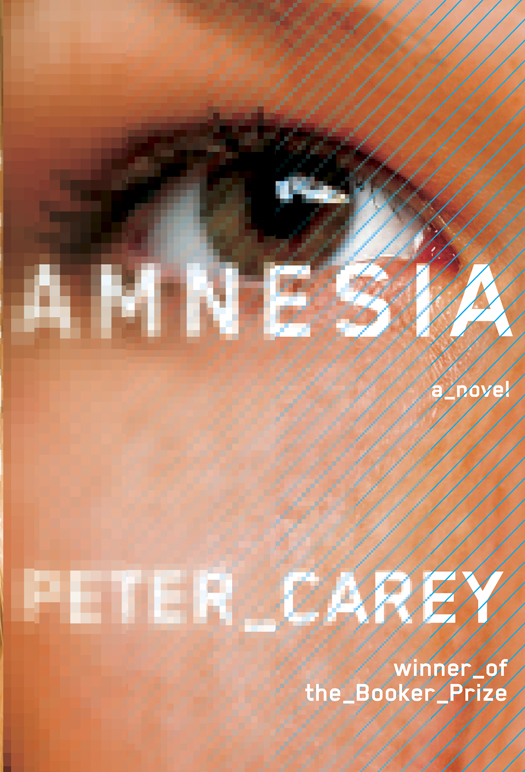
Amnesia
A Novel
کتاب های مرتبط
- اطلاعات
- نقد و بررسی
- دیدگاه کاربران
نقد و بررسی

November 24, 2014
From two-time Booker winner Carey comes this complex new novel, focusing on the author’s native Australia, but exploring themes of journalistic freedom and Internet ethics. At the center of the book is the young Australian Gabrielle Baillieux, who releases a virus called the Angel Worm in the computer system that controls the Australian prison system, releasing thousands of prisoners throughout Australia and, inadvertently, in the U.S. The move could be construed as an act of terrorism, a bold stroke in the fight for human rights, or just a geeky plan gone awry. Journalist Felix Moore is hired to write Gabrielle’s story sympathetically, to avoid her extradition. In the process, he spends time with her mother, the actress Celine Baillieux, whom he had previously known in college. Looking back through the two women’s lives, Felix also explores Australia’s history since WWII, confusing himself but also educating readers about the Land Down Under. Throughout the book, Carey’s cartwheeling prose and dazzling intellect can be challenging to keep up with, but the book is worth the effort.

November 15, 2014
Carey returns to his native Australia, the setting of his two Booker-winning novels (Oscar and Lucinda, 1988; True History of the Kelly Gang, 2001), for this busy, history-soaked study of politics, family and computer hacking.Felix, the hero and occasional narrator of Carey's 13th novel, is a legendary journalist who's recently been disgraced in a libel trial. To redeem himself (and pay off his fines), he falls back into the orbit of a wealthy and politically powerful friend, who has a job for him: Write the life story of Gaby, a young woman accused of releasing a computer virus that freed inmates in almost 5000 U.S. prisons and jails. Felix was college friends with Gaby's mother, Celine, and he's being steered to find Gaby innocent, quite forcefully so-over time he'll be sequestered in a remote hut and motel room with nothing but a typewriter and tapes of Gaby and Celine's conversations to keep him company. That's the novel's spine, but it's forced to bear the weight of a lot of back story, including musings on the CIA's involvement in the disruption of Australia's scandal-ridden government in 1975; the U.S. soldier and serial rapist who impregnated Celine's mother; and Gaby's awkward adolescence in the late '80s, when she fell for a young man who taught her the ways of hacking, which led to some muckraking of a local polluter. As the title suggests, Carey is interested in the ways that we forget about the darker but influential moments in our lives, often deliberately. It's a provocative theme, and Felix's seen-it-all tone gives the political scenes an appealingly hard-nosed, jagged mood. But the novel overall is baggy, shifting from coder-speak to blunt dialogue to reportage. History is a complicated web, Carey reminds us, but this one is particularly sticky. A relatively forgettable entry in a top-shelf novelist's oeuvre.
COPYRIGHT(2014) Kirkus Reviews, ALL RIGHTS RESERVED.

February 15, 2015
Delving into political activism and ecoterrorism, this literary mystery by two-time Man Booker Prize winner Carey starts off with the unleashing of a computer virus that opens prison doors in Australia and the United States. Gaby, the daughter of a politician and his actress wife, is identified as a suspect in the viral attack, and soon Felix Moore (a writer with his own political past) is commissioned by wealthy shadow figure Woody Townes to produce a book about her. Felix is promptly abducted and taken to a remote location, where he transcribes tape recordings of reminiscences by Gaby and her mother, which comprise the bulk of the novel. His efforts result in a work bearing the same title as the present novel, which when released on the Internet has far-reaching consequences. Looming large over all these events is the Australian Constitutional Crisis of 1975. VERDICT Intricate and well told, with compelling details of Australian political and social history, this book is nevertheless slow paced, with shifts in time and perspective complicating matters. In the end, the characters never really command the reader's sympathy enough to move beyond the political and environmental into human drama. [See Prepub Alert, 9/8/14.]--James Coan, SUNY at Oneonta Lib.
Copyright 2015 Library Journal, LLC Used with permission.

























دیدگاه کاربران